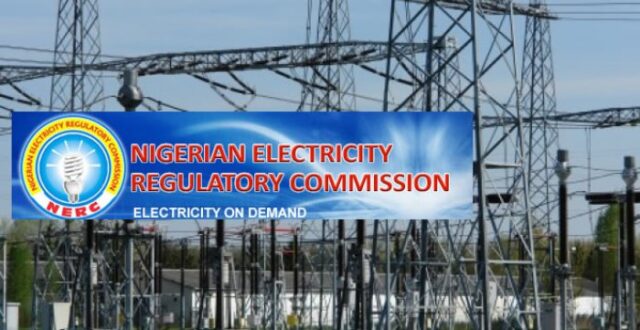
Following nationwide protests over the recent adjustment from N2 to N4 per Kilo watt/hour in electricity tariff by the Nigerian Electricity Regulatory(NERC), the Federal Government, yesterday, ordered the immediate reversal of the policy.
Minister of Power, Mr. Saleh Mamman, directed NERC to inform all Electricity Distribution Companies (DISCOs) to revert to tariffs that were applicable in Dec. 2020.
But, Head, Corporate Communications, Ikeja Electric, Mr. Felix Ofolue, in a telephone interview with Daily Sun, said NERC was yet to duly notify them of the latest directive.
Also, an official of Kaduna Disco, who pleaded not to named because he was not authorised to speak said the company was yet to get such directive from NERC.
Spokesman for the Minister of Power, Aaron Artimas, in a statement, said the reversal to the old tariff was to promote a constructive conclusion of the dialogue with the Labour Centres (through the Joint Ad-Hoc Committee).
“I have directed NERC to inform all DISCOs that they should revert to the tariffs that were applicable in December 2020 until the end of January 2021 when the FGN and Labour committee work will be concluded. This will allow for the outcome of all resolutions from the Committee to be implemented together,” he said.
The minister spoke against the backdrop of reports that electricity tariff had been increased by 50 per cent.
“I would like to affirm that these reports are inaccurate and false. It is unfortunate that these reports have led to confusion with the public.
“On the contrary, government continues to fully subsidise 55 per cent of on-grid consumers in bands D and E and maintain the lifeline tariff for the poor and underprivileged. “Those citizens have experienced no changes to tariff rates from what they have paid historically, aside from the recent minor inflation and forex adjustment. Partial subsidies were also applied for bands A, B and C in October 2020,” he said.
Mamman said that these measures were all aimed at cushioning the effects of the pandemic while providing more targeted interventions for citizens. He said that the public was aware that the Federal Government and the Labour Centres had been engaged in positive discussions about the electricity sector through a Joint Ad-hoc Committee.
He said the committee was led by Mr. Festus Keyamo, Minister of State for Labour and Productivity and co-chaired by Minister of State for Power, Mr. Goddy Jedy-Agba. According to him, progress has been made in these deliberations which are set to be concluded at the end of January.
“Some of the achievements of this deliberation with Labour are the accelerated rollout of the National Mass Metering Plan and clamp downs on estimated billing.
“Improved monitoring of the Service Based Tariff and the reduction in tariff rates for bands A to C in October 2020 (that were funded by a creative use of taxes).”
The minister said it should be cleared that the regulator must be allowed to perform its function without undue interference. He said the role of government was not to set tariffs, but to provide policy guidance and enabling environment for the regulator to protect consumers and for investors to engage directly with consumers. According to him, bi-annual minor reviews to adjust factors such as inflation are part of the process for a sustainable and investable Nigeria Electricity Supply Industry (NESI).
He also said the regulator must be commended for implementing the subsisting regulations while putting in place extensive actions to minimise the adverse impact on end user tariffs.
“The administration is committed to creating a sustainable, growing and rules-based electricity market for the benefit of all Nigerians. The administration and the Ministry of Power will also continue to devise means to provide support for vulnerable Nigerians while ensuring we have a sustainable NESI,” he said.
Meanwhile, stakeholders are still threathing violence over the hike saying that the tariff increase would impact negatively on the purchasing power of Nigerians.
President of Senior Staff Association of Electricity and Allied Companies (SSAEAC), Dr. Chris Okonkwo, yesterday, told Daily Sun that the hike is unacceptable to labour because the purchasing power of consumers are low and cannot accommodate the hike.
“It is still not acceptable to Labour because earnings are too low for the additional cost. Additional costs impact negatively on purchasing power and price of goods” he said.
Similarly, former Commissioner of Finance, Imo State and a professor of CapitaI Market, Nasarawa State University, Keffi, Uche Uwaleke thinks the increase is ill-timed. In his opinion, NERC’s action has the potential to escalate inflationary pressure.
“I think it is ill-timed. Much as having in place a cost-reflective tariff is in the long term interest of the power sector due to its potential to attract investors, implementing such a reform now would be counterproductive.
“Nigerians are just coming to terms with increases in VAT and the pump price of fuel. An increase in electricity tariffs will not only worsen the inflationary pressure but is also capable of diminishing productivity of households as well as firms that may find it difficult to pass it on to consumers on account of the current economic recession.
“I think, the implementation should be postponed till the country attains full economic recovery and the current pandemic effectively contained,” he suggested.
Source: Sun News







